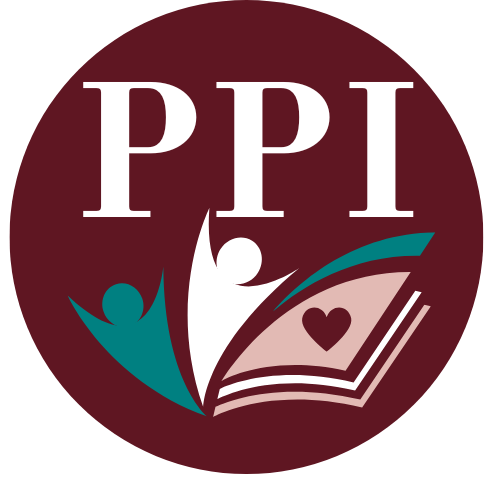When was the last time
you encountered something so captivating that you were driven to share it with
others? It could have been an article, a meme, or even a book. Personally, I
constantly find myself sharing the latest book I've read with someone. I enjoy
passing on impactful quotes and I truly find joy in sharing valuable research.
This is the very reason I
enjoy my weekly streaming show ‘Asking for a Sister Friend’. Each week I invite
a guest who has knowledge to share who is an expert in mental health and
wellness. Each guest brings their unique perspective and practical advice,
helping to demystify mental health and make wellness accessible to everyone.
The feedback has been
overwhelmingly positive, with many listeners expressing how much the show has
helped them in their personal journeys. It’s a gratifying experience to know
that we’re not only inspiring our listeners but also to broadening the audience
for the professionals who appear as guests on our show. By offering a platform
where their expertise can shine, I hope to help my guests realize the
extraordinary work they are doing and how others can benefit from their
knowledge and insights. Check out episodes 1-15 on my YouTube channel.
As I think about my own
intentions around sharing the expertise of others, I have to ask myself why I
am so eager to share other’s expertise but sometimes overlook my own
extraordinary contributions. Maybe it boils down to a deep respect for other’s talents
and wisdom that compels me to celebrate and share their victories. Celebrating
their achievements allows me to draw inspiration, learning from their
experiences and successes. However, in this process, I might unintentionally
downplay my own accomplishments, forgetting that my journey and wisdom also
hold significant value.
Maybe the root cause is
trying to be humble. My upbringing taught me from a young age to downplay my
own achievements to avoid appearing boastful. This makes it difficult for me to
recognize and celebrate my own successes. There could be other reasons for this
behavior causing individuals to fail to recognize and celebrate our own
successes.
For instance, in my work
with women married to pastors and influencers, I ultimately I named a syndrome
called ‘the first lady syndrome’. This term refers to the unique set of
challenges and pressures faced by women who find themselves in the spotlight or
in the shadows due to their husband’s prominent position. These women often navigate
a complex landscape of public expectations, media scrutiny, and personal
aspirations. The First Lady Syndrome encapsulates the emotional and
psychological toll that comes with being thrust into a role that demands grace,
diplomacy, and relentless public service, often with little preparation or
support.
I first
coined the syndrome due to a series of interviews and case studies where I helped
women overcome feelings of isolation, anxiety and identity crisis. These women,
often accomplished in their own right, found themselves overshadowed by their
husbands' careers and expected to conform to traditional roles. I observed that
spouses of pastors and influencers often faced unique challenges, including
immense public scrutiny, loss of privacy, and the pressure to maintain a
perfect public image. My work shed light on the emotional and mental health
struggles that these women endure, often behind the scenes and away from the
public eye.
Ultimately,
my work in this area resulted in my being labeled ‘The First Lady Coach’ paving
the way for more inclusive and empathetic conversations about mental health and
well-being in high-pressure environments My findings have since prompted
further studies and discussions about the well-being of those who stand beside
public figures, highlighting the importance of acknowledging and addressing the
often-unseen struggles they face.
Finally
we have also emphasized the need for better support systems that acknowledges
these unique challenges and provides resources to help manage the stress and
maintain personal well-being. By recognizing and addressing First Lady
Syndrome, we can now offer better support to women providing access to
counseling, peer support groups, and educational programs tailored to the
specific demands of their role.
Whew.
That’s the first time I really acknowledged the work I’ve accomplished in this
field. When I asked myself why I hadn’t
shared my accomplishment it took some serious introspection to understand my
own behaviors. By understanding these reasons, we can start to shift our
perspective and give ourselves the credit we deserve.
Comparing Oneself to Others – The very fact that I named this phenomenon a syndrome, I
suddenly found myself comparing myself to Drs. Clance and Imes the originators
of the imposter syndrome. Their
observations and research began when they focus on high-achieving women who,
despite their academic and professional accomplishments, felt a persistent fear
of being exposed as frauds. To me their work is extraordinary and unmatched
because ‘imposter syndrome’ is recognized widely.
Having a
background in research and being an author of only about five journal articles,
when I compared myself to Dr, Clance and Dr. Imes I obviously came up short. It
could be because they have developed their own scale and have done numerous
workshops, presentations and published in many psychological and medical
journals. Looking at the business vitae of Dr. Pauline Clance, caused me to
minimize the work I had done around ‘The First Lady Syndrome’. Even what I
consider my most significant accomplishments such as my Chosen Pearls and Wife VIP Coaching
Programs,best-selling Amazon e-book, Chosen for This, numerous blogs and
keynote presentation at the National Christian Counselors
Association(NCCA) annual conference feels so insignificant when I
find myself comparing myself to others.
Imposter Syndrome - Along with comparing myself
to others, it never fails that the imposter syndrome can rear its ugly head.Imposter syndrome can be a daunting challenge for any professional, particularly
those in client-facing roles. Take a few moments and think about any self-doubt
you have in your own abilities. If you are dealing with imposter syndrome,
check out my recent blog, When Imposter Syndrome Happens in the
Life of a Coach or a Counselorto recognize signs you may be dealing with imposter
syndrome.
Focus on Growth and
Improvement – Being a high achiever we
often set high standards for ourselves and focus on areas where we can improve.
Being a forward thinker makes it so easy to overlook past successes as the
emphasis is always on what’s next. I am guilty as charged when it comes to
focusing on growth. However, it's important to pause and reflect on
achievements as they are milestones that have shaped our journey and provided
the foundation for future growth.
Celebrating past
successes can reignite our motivation and remind us of our capabilities. By
acknowledging these accomplishments, we not only honor our hard work but also
build confidence to tackle new challenges. Remember, each step forward is built
on the successes of the past, and taking the time to appreciate them can bring
a sense of balance and fulfillment to our relentless pursuit of excellence.
External Validation: Externally, societal pressures and
unrealistic standards set by media can make us feel inadequate. Unfortunately
as humans there is a tendency to seek approval and recognition from others.
When someone else acknowledges our achievements, it feels more validated.
Conversely, we might undervalue our own contributions because they don't
receive the same external recognition.
When we don’t have
external validation it may cause us to question our expertise. But it's
important to recognize that expertise comes in many forms. Each of us has
unique insights and experiences that contribute to our knowledge and skills. By
valuing our own efforts, we can build confidence and inspire others around us.
Whether it's a small accomplishment or a significant milestone, every step
forward is worth celebrating. Remember, even experts started as beginners.
Embrace your journey, and give yourself the credit you deserve.
Why we fail
to acknowledge own extraordinary abilities can often be traced back to a
variety of factors, both internal and external. Recognizing this, I am reminded
of the importance of self-appreciation. Embracing your unique contributions
doesn't diminish the worth of others; instead, it cultivates a balanced
perspective where both your efforts and those of your peers are honored. By
doing so, we can foster a more
supportive and inclusive environment that encourages growth for everyone,
including yourself.



